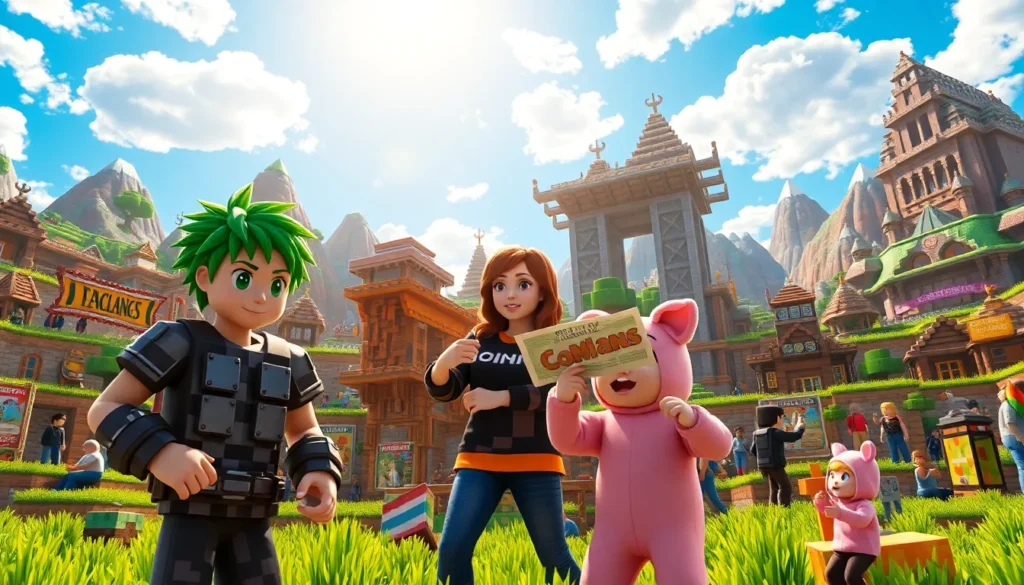Table of Contents
ToggleNintendo has long been a cornerstone of the gaming industry, captivating players with imaginative worlds and memorable characters. The Nintendo Archives stand as a testament to this legacy, offering insights into the company’s extensive library of games that have shaped the gaming landscape. This article delves into the evolution of Nintendo’s offerings, the significance of retro gaming, community interactions, and what the future holds for these cherished archives, highlighting why they matter to gamers both old and new.
Overview of Nintendo Archives

The Nintendo Archives are more than just a repository of games: they represent a rich history that spans decades. Since its inception in 1889 as a playing card company, Nintendo has evolved into one of the largest and most influential video game developers in the world. The archives encompass not only games but also development materials, concept art, and marketing materials that trace the lineage of iconic titles.
Players can explore this digital treasure trove to discover the evolution of beloved franchises like Mario, Zelda, and Donkey Kong. As Nintendo continues to innovate, the archives offer a nostalgic glance back, fostering a deeper appreciation for the complexities and creativity involved in game development.
The Evolution of Nintendo’s Game Library
From simple 8-bit graphics to sprawling 3D worlds, Nintendo’s game library showcases a remarkable evolution in technology and design. Each console release brought forth innovations that redefined gameplay mechanics. The Nintendo Entertainment System (NES) set the stage in the 1980s, introducing classics like “Super Mario Bros.” with its revolutionary side-scrolling gameplay.
As technology advanced, so did Nintendo’s vision. The Super Nintendo (SNES) introduced more complex storytelling and graphics in games like “The Legend of Zelda: A Link to the Past,” while the Nintendo 64 brought players into the realm of 3D with titles like “Super Mario 64.”
The GameCube and Wii continued this trend, with the Wii’s motion controls revolutionizing how players interacted with their games. The Switch, with its hybrid nature, represents the culmination of this evolution, blending traditional console gaming with handheld portability, allowing gamers to enjoy their favorite titles anytime, anywhere.
Significance of Retro Gaming
Retro gaming holds a special place in the hearts of many players, serving as a reminder of the passion and creativity that defined earlier generations of gaming.
Key Highlights from the Archives
The Nintendo Archives offer key highlights that recount legendary moments in gaming history. For instance, the launch of the NES in North America heralded a new era for video games, igniting public interest and leading to a gaming renaissance.
Notable Games and Their Impact
Games like “The Legend of Zelda” have not only become franchises but cultural phenomena, influencing countless titles across all genres. They set standards for storytelling and gameplay that are still observed in modern games today.
Hidden Gems Worth Discovering
Beyond the mainstream hits, the archives reveal lesser-known treasures such as “EarthBound” and “Secret of Mana,” which have cult followings for their quirky charm and innovative gameplay. These hidden gems illustrate the breadth of creativity within Nintendo’s catalog, encouraging new players to explore beyond the well-trodden paths.
Community and Fan Interactions
Community engagement is a vital aspect of the Nintendo experience. Fans come together through various platforms, sharing experiences, tips, and their passion for games.
Sharing Experiences Through Forums and Social Media
Online communities have blossomed around Nintendo’s games, from Reddit threads to dedicated Discord channels. These platforms foster discussions that range from nostalgic reminiscing to serious gaming strategies, enriching the overall experience of players worldwide.
Influence of Fan Projects on Nintendo Archives
Fan projects often serve to enhance the existing archives. From fan art and remixes to fan-made games that expand on existing universes, these projects ask questions about what happens when creators and fans interact. While some might tread into legality, they contribute to the sense of community that characterizes Nintendo’s legacy.
Future of Nintendo Archives and Preservation Efforts
As technology continues to advance, so too does the challenge of preserving game history. The Nintendo Archives face unique hurdles that threaten the preservation of gaming’s cultural heritage.
The Role of Digital Preservation
Digital preservation initiatives are essential for ensuring that past titles remain accessible to future generations. Projects aimed at archiving software, ensuring compatibility with new hardware, and converting old formats to modern ones are vital for maintaining Nintendo’s extensive catalog.
Challenges Facing Game Preservation
Yet, challenges abound. Aging hardware, loss of source code, and the complexities of licensing can hinder preservation efforts. As Nintendo transitions to new technologies, keeping its historical legacy intact grows increasingly complicated.
Conclusion
The Nintendo Archives serve as a crucial resource for gamers and historians alike, chronicling the evolution of one of the most beloved gaming companies ever. From its humble beginnings to its current innovations, Nintendo’s legacy is rooted deeply in its storied game library.
With a passionate community fueling discussions and preserving games for future generations, it is clear that the spirit of nostalgia and innovation will continue to thrive within Nintendo’s archives. As both gamers and fans look toward the future of gaming, they must also embrace the past, celebrating the experiences that shaped their journeys in the world of interactive entertainment.





